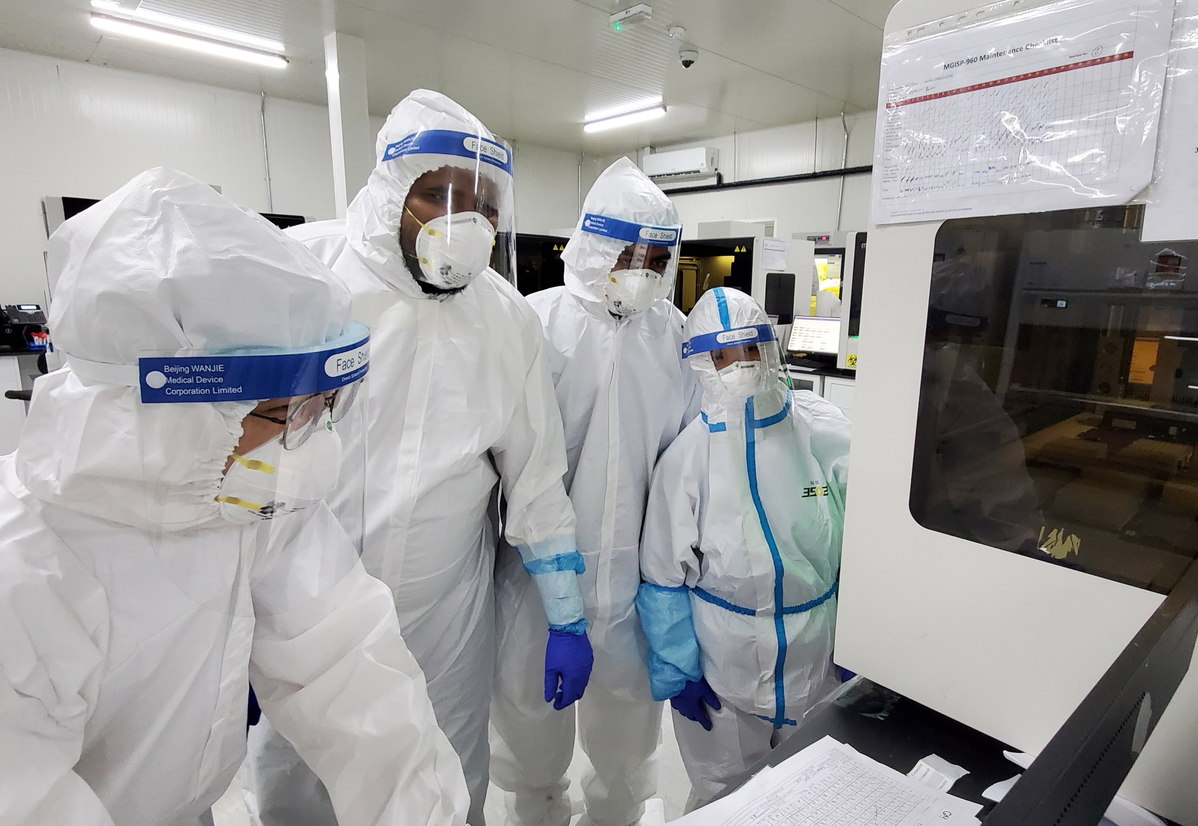Converting risks into opportunities
By ZHENG YIRAN | China Daily | Updated: 2021-01-11 09:21

"On the other hand, cost-control requirements have become prominent during the pandemic, and local manufacturers are eager to seek more cost-effective and outstanding products. Our products with high cost performance are expected to be better accepted by the overseas markets."
Industry experts said the pandemic had caused changes in the short-term layout of global supply chains, as well as in more complicated external policy environments.
Chinese companies going global needed more early warning mechanisms and risk awareness, to better participate in the reshaping of global industrial chains.
Shi Zhan, director of the World Politics Center, which is part of Beijing-based China Foreign Affairs University, said when the pandemic broke out, the world economy was severely disrupted, and consumption, trade, production and logistics all stagnated or found a difficult recovery process ahead.
"Chinese enterprises, especially private ones and small to medium-sized enterprises, should figure out the nature of risks, stay calm, and make adjustments," he said.
Lyu Hailong, an independent artificial intelligence analyst, said Chinese enterprises with overseas operations may want to consider substituting some human resources with AI, given the need to avoid the risk of contagion.
Tony Ma, client liaison director of International SOS China, whose services help its enterprise clients mitigate employees' health and security-related risks and associated costs, said: "For Chinese enterprises going global, one of the major risks that they should pay attention to is geopolitical risk. The influence that the pandemic had brought to the whole international society was so great that every organization should pay attention to the entire world pattern, as well as their own operating environment in the host country.
"Specifically, Chinese enterprises should focus on evolving international relations, and changes in the world's power structure, which could have impacts on the companies' overseas operations."
Agreed his colleague Echo Li, medical director of assistance advisory services for International SOS China. She said: "When Chinese enterprises are sending out their employees to overseas locations, the assignees and business travelers are advised to take a physical examination before setting out. Considering that the destination country may not have complete medical system, the assignees and business travelers should consult with a medical professional before departure, and make relevant preparations, such as getting appropriate vaccinations.
"For those in need, we offer various training courses online that can equip individuals on basic first aid awareness and basic knowledge on some common diseases. We also provide telehealth services that connect patients with certified healthcare professionals online in some locations."
Such emerging services may be warranted because workforce risks were perceived to be at a five-year high and are expected to increase this year, according to a survey-based industry report.
The online survey of 1,425 risk professionals across 99 countries and regions was conducted by International SOS Group, which provides health and security services including medical assistance, emergency services, evacuation and repatriation services to global enterprises.
The concern about workforce risks was most acutely felt in Asia. The report said Asian enterprises with overseas businesses may rethink their business operations and strategies.
According to the survey, around eight in 10 risk professionals believe the health and security risks faced by the workforce increased in 2020.About half of the respondents said they believe such risks will increase further this year, with even higher percentage of risk professionals from Asia worrying about the rising risks, especially among those responsible for assignees and business travelers.
Neil Nerwich, group medical director at International SOS, said: "The COVID-19 pandemic has created a tripartite of crises, with public health, geopolitical and economic crises all affecting the workforce and business on a global scale. This has been exacerbated by an 'infodemic' in an increasingly complex world environment."
According to a recent report published by professional services firm EY (known earlier as Ernst &Young), although the economic havoc caused by COVID-19 had resulted in a re-evaluation of global companies, and slowed down the pace of Chinese enterprises' overseas expansion, in the long run, the latter will be further involved in the adjustment of global supply chain and industrial chain.
Shi of the WPC said: "When the epidemic is over, for Chinese enterprises, the opportunities of going global will be greater than challenges."
- Year of struggle and success signals growing strength
- COVID-19 vaccine safe, effective, official says
- New COVID-19 precaution regulation introduced for Beijing taxi passengers
- Containment measures in all rural areas should be strengthened for Spring Festival: China Daily editorial
- Couriers, delivery workers return to work in Shijiazhuang in N China's Hebei
























